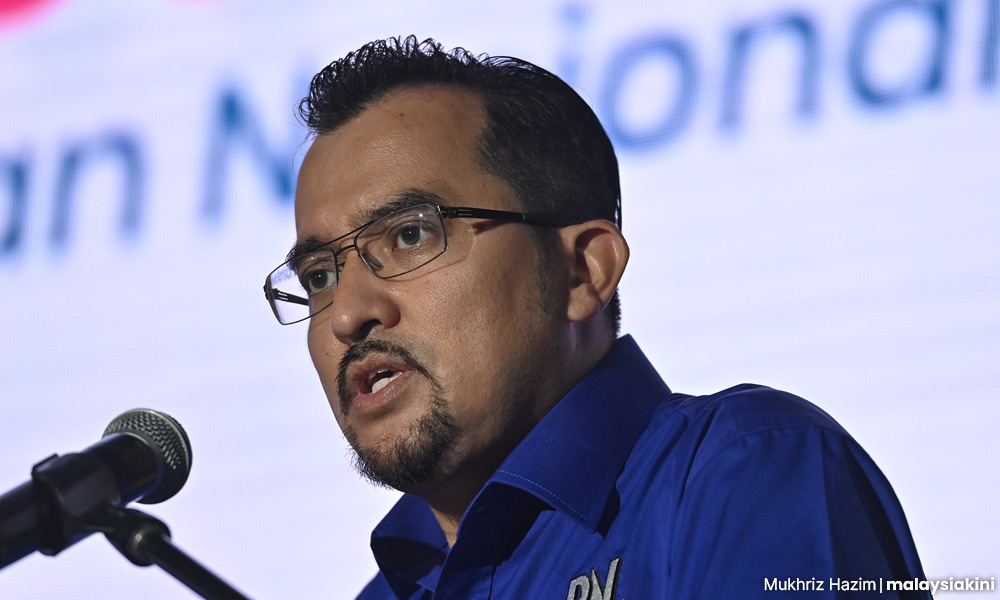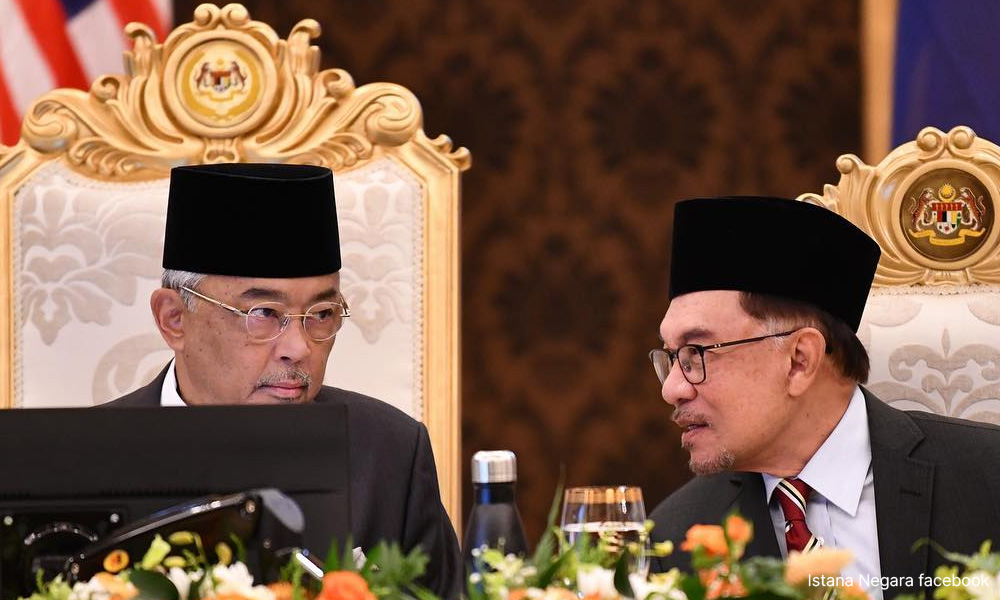“For the powerful, crimes are those that others commit.”
- Noam Chomsky, in his book Imperial Ambitions: Conversations on the Post-9/11 World
The “pardon for Najib” juggernaut has been rolled out. It is not exactly thundering to its intended outcome but sputtering with loud accompanying voices.
As loud as they can be, the voices of the detractors and naysayers to such an outrageous thought are drowning the words of the proponents and the movers behind it.
Last week, the Umno supreme council asked the Yang di-Pertuan Agong to consider granting former prime minister Najib Abdul Razak a royal pardon.
Umno secretary-general Asyraf Wajdi Dusuki said his party’s supreme council will also seek an audience with the King to present a memorandum asking for Najib to be pardoned.

In a statement, Asyraf said the memorandum was handed to the top leadership by the 191 Umno divisions and was also signed by the supreme council.
“The Supreme Council takes note of the grassroots’ concerns over the (Federal Court’s) decision (to dismiss Najib’s bid to review his conviction and sentence in the SRC case),” he said.
Never mind if the law does not allow a pardon application to be submitted by third parties on behalf of the prisoner, but it’s Umno and anything and everything which suits them is kosher.
Under Regulation 113 of the Prisons Regulations 2000, Umno has no locus standi or legal standing to submit an appeal for Najib’s pardon.
Petitioning the ruler
However, if one looks at this whole episode, it will be an exercise in futility. For one, it is a non-starter. It states:
(1) A prisoner may, if he wishes, petition the Yang di-Pertuan Agong or the Ruler or Yang diPertua Negeri, as the case may be, on the subject of his conviction or sentence, once as soon as practicable after his conviction and a second such petition shall be allowed when a prisoner has completed three years from the date of conviction, and thereafter such petitions shall be granted at two yearly intervals, unless there are any special circumstances which the Officer-in-Charge may consider should be brought to the notice of the Yang di-Pertuan Agong or the Ruler or the Yang di-Pertua Negeri, as the case may be.
(2) A prisoner may, if he wishes, petition the Yang di-Pertuan Agong or the Ruler or the Yang diPertua Negeri, as the case may be, on any other subject at any time, provided that no petition shall be permitted if the reply to a previous petition on the same subject is still outstanding
The law is clear but it is Umno. Despite all claims of change and a new façade to go with it, it is not different from the “old” Umno which saw itself and its leaders as “we can do no wrong”.
At first, it was nibbling at the apparatus of governance and its finances, but then it became a habit. Over the years, it was fine-tuned to become a culture by certain leaders. Now, the entire party wants to see and do what they deem fit as if it is their entitlement.
Prime Minister Anwar Ibrahim has conspicuously denied there would be any conflict of interest in his involvement in the pardon process, saying the decision is at the sole discretion of the Yang di-Pertuan Agong.

But Sultan Abdullah Sultan Ahmad Shah reportedly said the power to punish and pardon must not be used arbitrarily because it will be held accountable in the “afterlife”.
“If the law is not implemented consistently and fairly, justice will certainly not be achieved as the philosophy behind the enactment of a law would have been tainted, and as a result, the disadvantaged party would end up being victimised by those in power,” national news agency Bernama quoted the Agong as saying.
The King was also quoted as saying that Islamic justice prohibits privilege or exception to be given to anyone who commits wrongdoing, be it oneself, close friends, family members, or parents.
Pardon must be lawful
His statement was supported by Selangor Sultan Sharafuddin Idris Shah Alhaj who expressed his “solid” support of the Yang di-Pertuan Agong’s assertion that royal pardons cannot be meted out arbitrarily.
The Selangor monarch reminded Malaysians that while the King has the discretionary power to pardon those who have been convicted, it must be done according to the law.
“The public must understand that the pardon process may be done according to the law and procedures as provided under the Constitution and its relevant laws,” the state ruler said in a statement on Sept 22.
So, what next for Umno? The keyword in Rule 113 is “prisoner”. Period. Any petition other than that from Najib will never be considered.
So, why all this song and dance? Didn’t the minister in charge of law who is also a party stalwart advise the leaders?
More importantly, Najib has not expressed remorse for the acts for which he had been convicted and is now seeking a pardon for. Instead, the tired old phrase – fair trial – has become an overused cliché.
The time has come for the authorities to lay down the law. No more theatrics, no more rhetoric, and reinforce the line – if you do the crime, you must do the time. - Mkini
R NADESWARAN is a veteran journalist who writes on bread-and-butter issues. Comments: citizen.nades22@gmail.com.
The views expressed here are those of the author/contributor and do not necessarily represent the views of MMKtT.



No comments:
Post a Comment
Note: Only a member of this blog may post a comment.